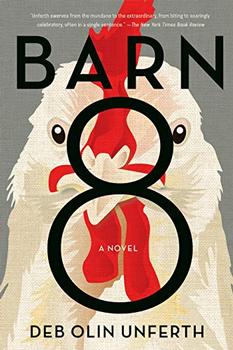Summary | Excerpt | Reviews | Beyond the book | Read-Alikes | Genres & Themes | Author Bio

The Epic Saga of the Bird that Powers Civilization
by Andrew LawlerFrom ancient empires to modern economics, veteran journalist Andrew Lawler delivers a sweeping history of the animal that has been most crucial to the spread of civilization across the globe - the chicken.
Queen Victoria was obsessed with it. Socrates' last words were about it. Charles Darwin and Louis Pasteur made their scientific breakthroughs using it. Catholic popes, African shamans, Chinese philosophers, and Muslim mystics praised it. Throughout the history of civilization, humans have embraced it in every form imaginable - as a messenger of the gods, powerful sex symbol, gambling aid, emblem of resurrection, all-purpose medicine, handy research tool, inspiration for bravery, epitome of evil, and, of course, as the star of the world's most famous joke.
In Why Did the Chicken Cross the World?, science writer Andrew Lawler takes us on an adventure from prehistory to the modern era with a fascinating account of the partnership between human and chicken (the most successful of all cross-species relationships). Beginning with the recent discovery in Montana that the chicken's unlikely ancestor is T. rex, this book builds on Lawler's popular Smithsonian cover article, "How the Chicken Conquered the World" to track the chicken from its original domestication in the jungles of Southeast Asia some 10,000 years ago to postwar America, where it became the most engineered of animals, to the uncertain future of what is now humanity's single most important source of protein.
In a masterful combination of historical sleuthing and journalistic exploration on four continents, Lawler reframes the way we feel and think about our most important animal partner - and, by extension, all domesticated animals, and even nature itself.
Lawler's narrative reveals the secrets behind the chicken's transformation from a shy jungle bird into an animal of astonishing versatility, capable of serving our species' changing needs. For no other siren has called humans to rise, shine, and prosper quite like the rooster's cry: "cock-a-doodle-doo!"
While this strong piece of narrative non-fiction does explore the “whys” of the chicken takeover — they could eat a wider variety of food, were amenable to living in small spaces, and produced more eggs over a longer period of the year — it is equally an inquiry into the “hows” of the bird’s phenomenal journey...continued
Full Review
 (634 words)
(634 words)
(Reviewed by Poornima Apte).
 "The backyard chicken movement sweeping the United States and Europe is a response to city lives far removed from the daily realities of life and death on a farm, and the bird provides a cheap and handy way for us to reconnect with our vanishing rural heritage," writes Lawler in Why Did the Chicken Cross the World? "This trend may not improve the life or death of the billions of industrial chickens, but it may revive our memories of an ancient, rich, and complex relationship that makes the chicken our most important companion. We might begin to look at chickens and, seeing them, treat them differently."
"The backyard chicken movement sweeping the United States and Europe is a response to city lives far removed from the daily realities of life and death on a farm, and the bird provides a cheap and handy way for us to reconnect with our vanishing rural heritage," writes Lawler in Why Did the Chicken Cross the World? "This trend may not improve the life or death of the billions of industrial chickens, but it may revive our memories of an ancient, rich, and complex relationship that makes the chicken our most important companion. We might begin to look at chickens and, seeing them, treat them differently."
Susan Orleans, a staff writer for The New Yorker, admitted in a 2009 article that she had a "chicken fixation." Calling the backyard ...

If you liked Why Did the Chicken Cross the World?, try these:

Around the World in Eighty Games
by Marcus du Sautoy
Published 2024
An award-winning mathematician explores the math behind the games we love and why we love to play them.

by Deb Olin Unferth
Published 2020
An unforgettably exuberant and potent novel by a writer at the height of her powers.